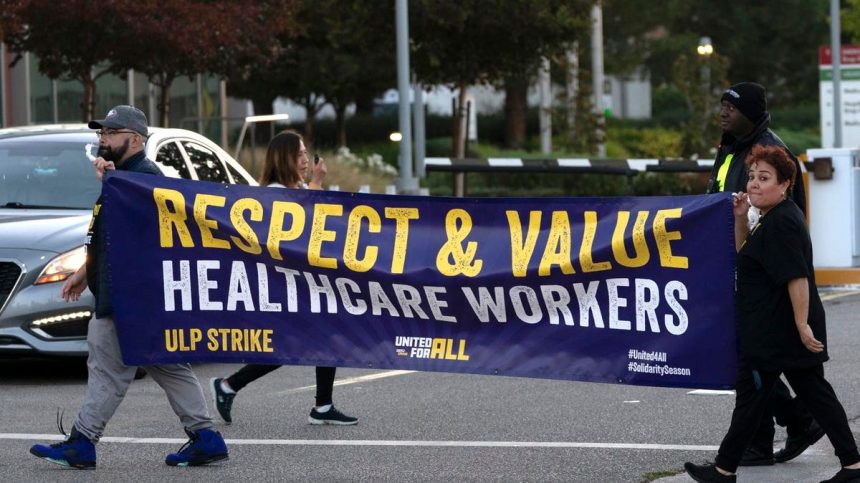Early this morning, 75,000 unionized employees for Kaiser Permanente, one of the largest American healthcare providers, went on strike, making it the largest healthcare worker strike in US history.
The strikers are taking to social media, with the Service Employees International Union-United Healthcare Workers (SEIU-UHW) tweeting:
“A message to our Kaiser patients. Join us in calling on Kaiser executives to bargain in good faith over solutions to the Kaiser short staffing crisis. Share our message with your family, friends, and all Kaiser patients.”
Social media is abuzz with pictures of picket lines, with strikers that include nursing staff, dietary workers, receptionists, optometrists, and pharmacists. Kaiser Permanente is headquartered in Oakland, California. The strike encompasses not only California, but Colorado, Washington, Virginia, Oregon and Washington DC as well. Strikers are represented by eight different unions across the country, and picking up more supporters.
An employee at Kaiser who spoke on background and requested anonymity noted that the strike was catalyzed by healthcare workers being overworked and burned out. “The major factors are post-COVID staffing shortages, with lots of people having quit or retired, not as many people replacing them in workforce, so remaining workers are definitely overworked. Pay has not increased to match inflation and cost of living.”
However, the employee also notes, Kaiser pays above market rates, so leadership was resistant to the workers’ demands, hence the breakdown in negotiations. The workers were demanding $25 minimum wage, with 6.25% pay increase per year over four years.
Meanwhile, Kaiser patients are also unsure what this will mean for their care, given the long wait times and difficulties in booking even routine appointments for flus and vaccines.
The strikes come at a pivotal time, with patients, healthcare workers, and hospital systems across the country overburdened and under-resourced.
Read the full article here




